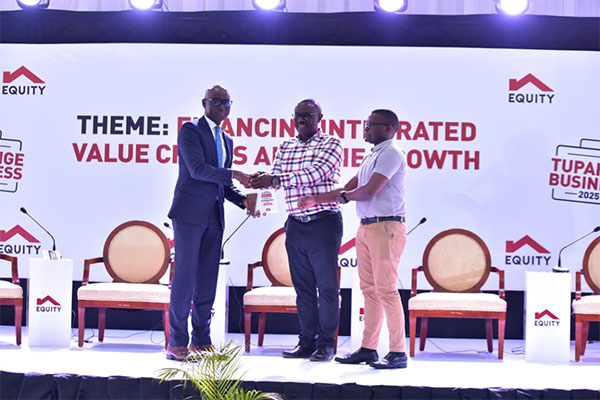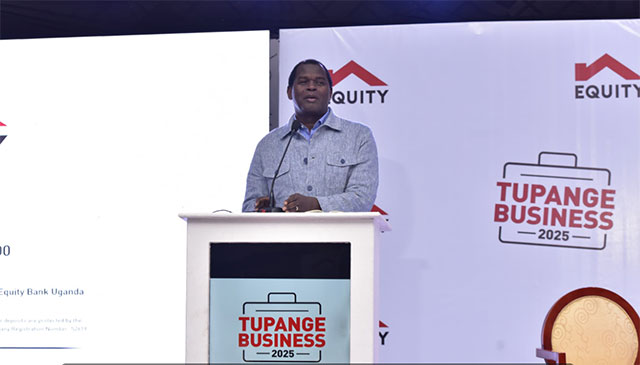
Equity Bank Uganda has officially launched the 2025 edition of its nationwide “Tupange Business ne Equity” forum, reaffirming its mission to bring tailored financial solutions and business support to small and medium enterprises (SMEs) across the country. The launch event, held at Hotel Africana in Kampala, set the tone for a series of regional engagements aimed at tackling the challenges SMEs face while unlocking growth through integrated value chains.
Addressing participants, Olivia Mugaba, Head of SME at Equity Bank Uganda, underscored the pivotal role SMEs play in Uganda’s economy. She noted that these enterprises create seven out of every ten jobs globally and are central to economic resilience. “When we empower SMEs, we empower the nation,” she said, explaining that the bank’s focus is on financing value chains end-to-end, helping entrepreneurs manage cash flow, optimise operations, and grow from anchor companies to the smallest suppliers.
The 2025 forum, themed “Financing Integrated Value Chains and SME Growth,” will take the campaign to Mbale on August 19, Arua on August 21, and later to Fort Portal and Hoima in September. Each session will connect entrepreneurs, farmers, traders, and distributors, helping them identify opportunities within shared value chains while providing access to credit, innovation, and markets.
Claver Serumaga, Executive Director of Equity Bank Uganda, emphasised that the initiative reflects the bank’s strategy of creating seamless banking experiences that help SMEs operate more efficiently. He highlighted products such as real-time payments, bulk salary processing, and unsecured supplier financing of up to UGX 1.5 billion, alongside forthcoming innovations like the “Pay with Equity” platform, designed to make daily transactions simpler and faster.
The event also featured testimonies that brought the bank’s impact to life. Pastor Robert Kayanja, founder of the Miracle Centre Cathedral, shared how Equity Bank supported agricultural projects in Karamoja, financing tractors that helped fight hunger and transform communities. “Their support proves that with the right partner, SMEs and social enterprises can thrive, and together we can create sustainable solutions that change lives,” he said.

Last year’s edition of the forum reached over 600 SME owners, offering them financial advice, networking opportunities, and access to markets. This year, the bank aims to support more than 1,000 SMEs by the end of 2025. The initiative builds on other Equity Bank programs, such as the “Abakyala Ku Ntikko” engagements with women entrepreneurs, and aligns with Uganda’s 2025/2026 growth agenda focused on commercial agriculture, industrialisation, digital transformation, and expanded market access.
Equity Bank’s continued investment in SMEs is part of its Africa Recovery and Resilience Plan, which targets critical sectors including agriculture, trade, manufacturing, and technology. By financing and connecting every part of the business ecosystem, the bank aims to ensure that SMEs not only survive current economic pressures but are positioned to lead Uganda’s growth in the years ahead.